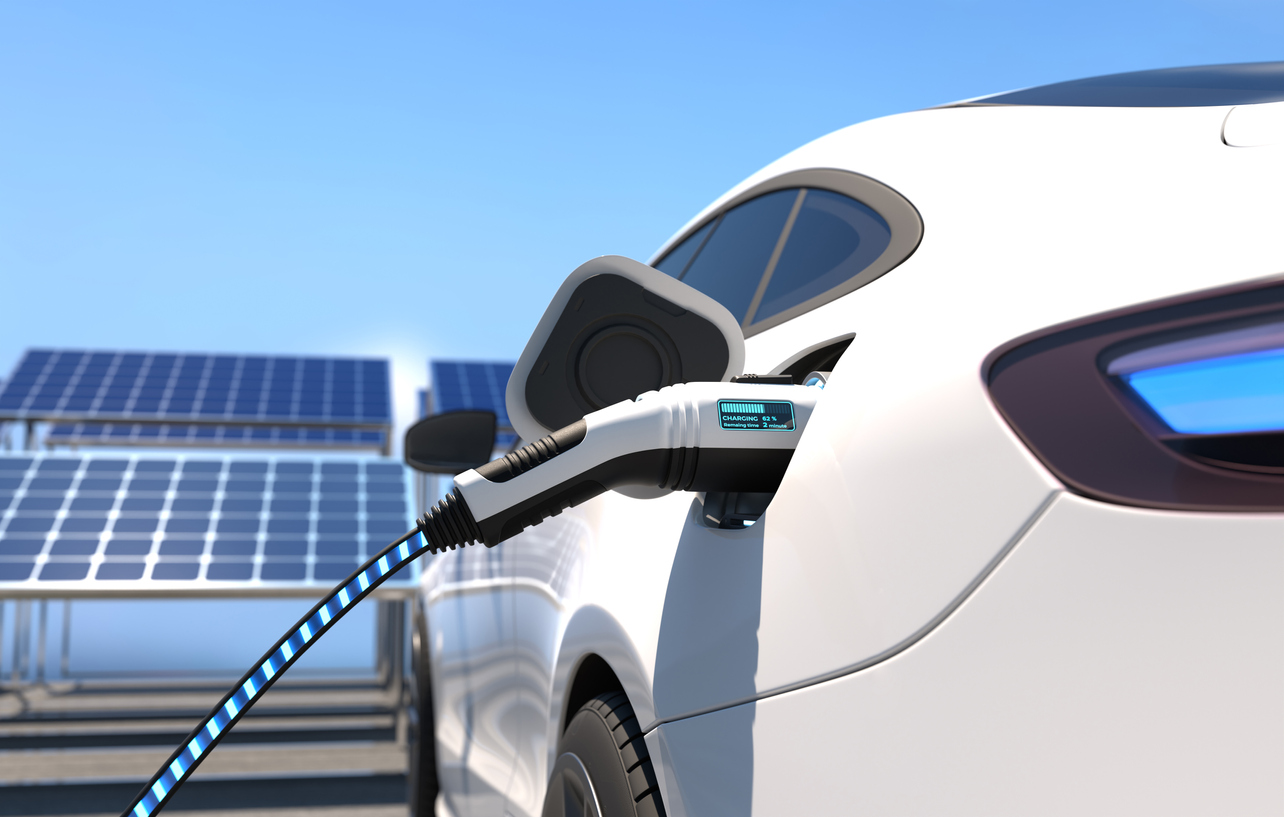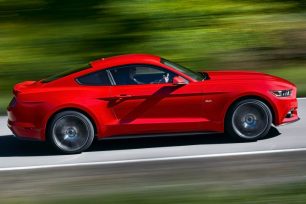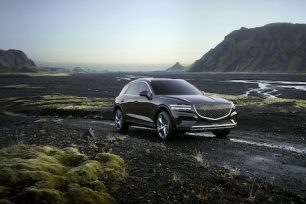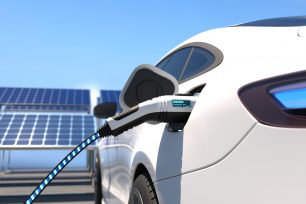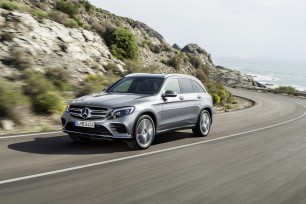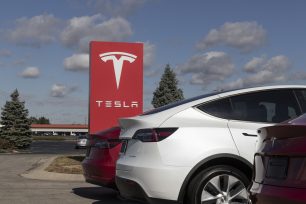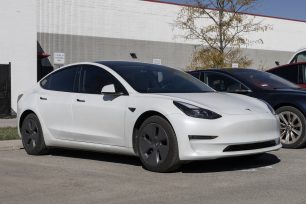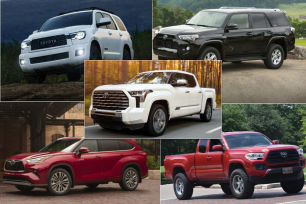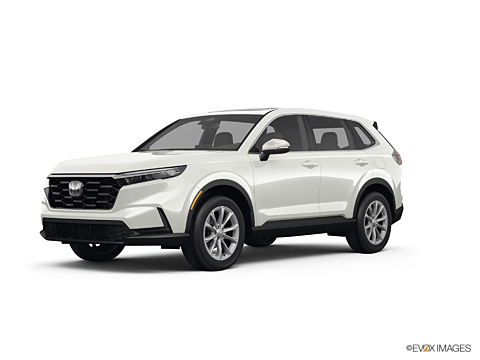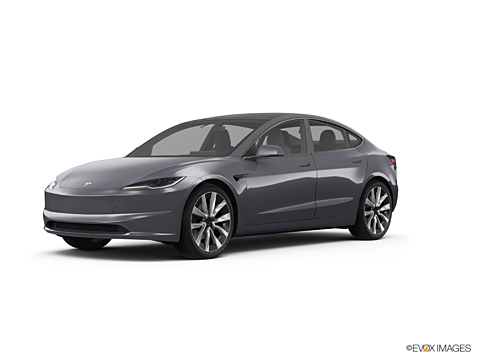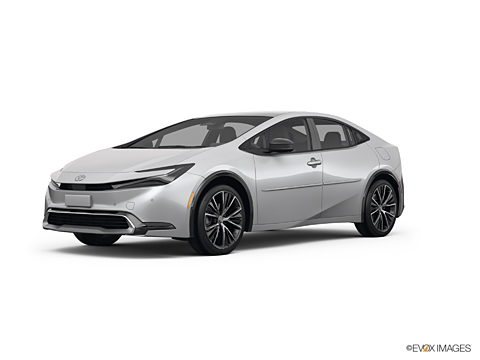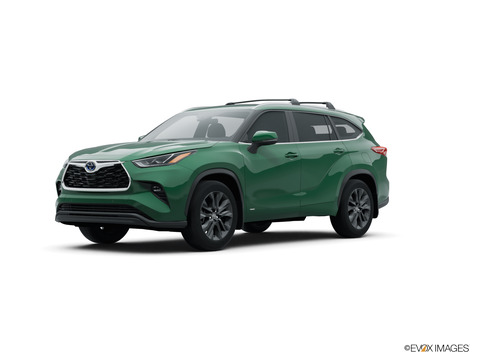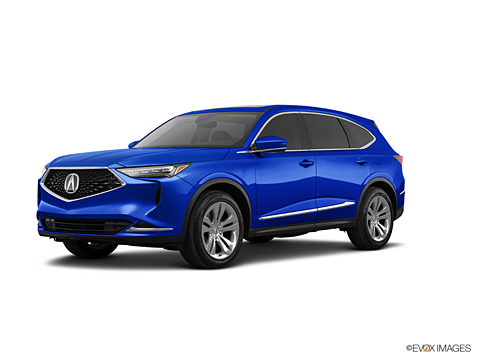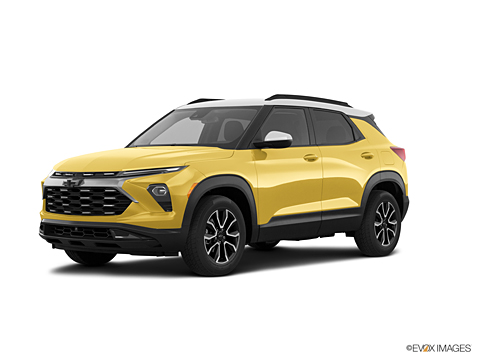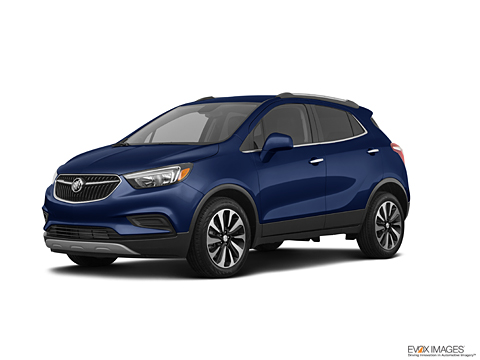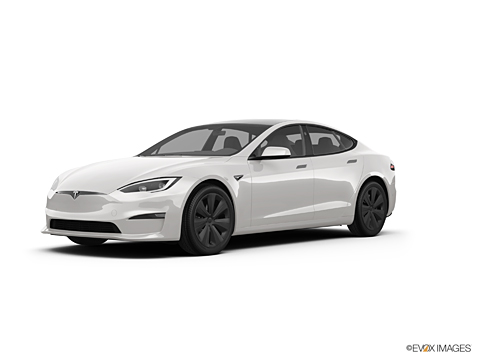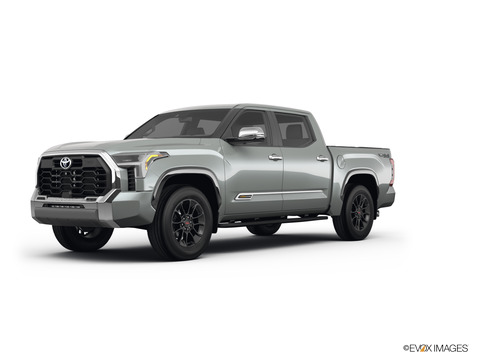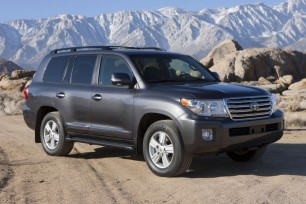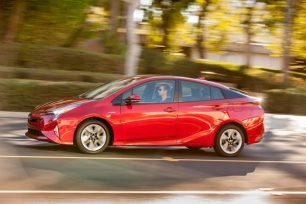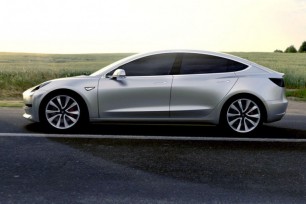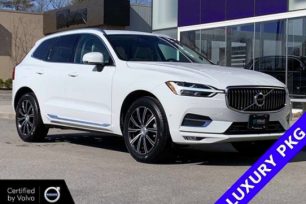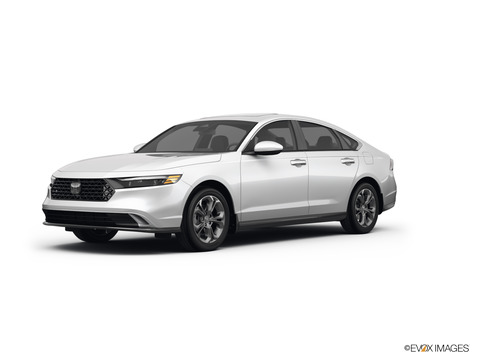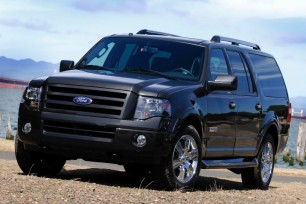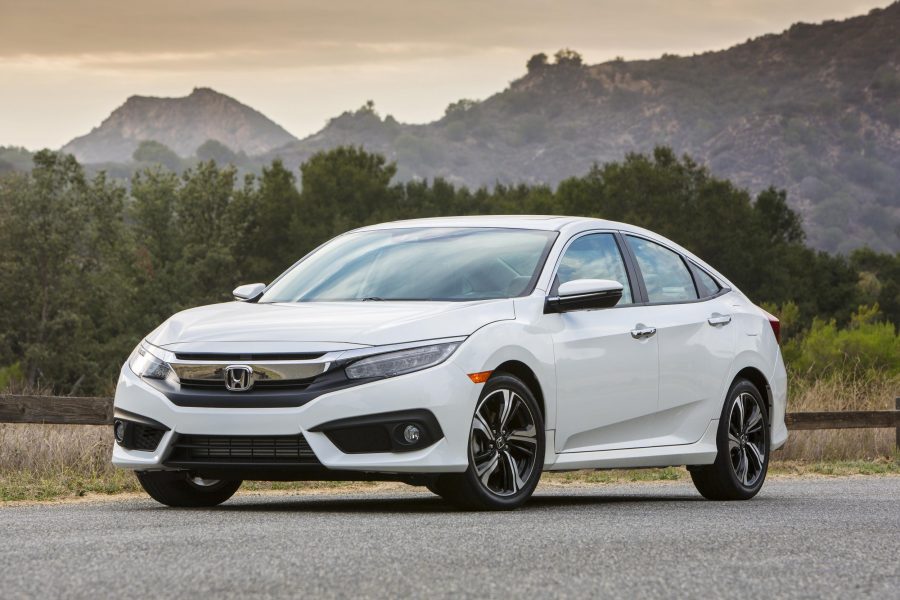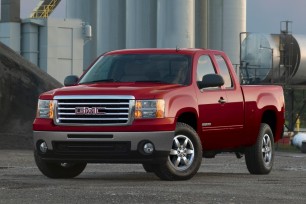Electric cars have exploded in popularity as gas prices remain elevated and many new EVs from a growing list of automakers continue to enter the automotive marketplace. With more electric cars available than ever before, shoppers can now choose a new or used EV across a wide range of price points.
Looking at the upfront cost of electric cars vs. gasoline cars shows EVs cost on average $11,000 more than their gasoline counterparts. However, there are federal and state EV tax credits that can defray these higher upfront costs for electric vehicles. Along with incentives, EVs also have lower maintenance costs because they don’t require oil changes, spark plug replacement, catalytic converters, or any equipment related to emissions. The regenerative braking system on battery-powered cars also extends the life of the braking system, and the cooling system for EVs is much simpler for regulating the car’s battery pack temperatures versus an internal combustion engine.
With such a wide range of electric vehicles now on sale, let’s look at the upfront costs of all available new and used EVs to help buyers find the electric car that suits their budget.
How Much Does a New Electric Car Cost?
Ranked from the lowest price to highest, here is the average new car cost of all the electric vehicles currently on the market, with these prices reflecting the average cost dealers are charging for each model.
| Average Cost of New Electric Vehicles | ||
| Rank | Electric Vehicle | Average New Car Price |
| 1 | Chevrolet Bolt EV | $31,421 |
| 2 | Chevrolet Bolt EUV | $33,422 |
| 3 | Nissan LEAF | $35,240 |
| 4 | MINI Hardtop | $36,450 |
| 5 | Tesla Model 3 | $40,505 |
| 5 | Hyundai Kona EV | $40,815 |
| 6 | Kia Niro EV | $43,143 |
| 7 | Tesla Model Y | $45,427 |
| 8 | Toyota bZ4X | $49,510 |
| 9 | Subaru Solterra | $49,713 |
| 10 | Hyundai IONIQ 6 | $50,235 |
| 11 | Volkswagen ID.4 | $50,361 |
| 12 | Hyundai IONIQ 5 | $53,467 |
| 13 | Nissan Ariya | $53,145 |
| 14 | Ford Mustang Mach-E | $57,856 |
| 15 | Kia EV6 | $58,479 |
| 16 | Volvo C40 Recharge | $58,855 |
| 17 | Volvo XC 40 Recharge | $59,548 |
| 18 | Polestar 2 | $60,041 |
| 19 | Chevrolet Blazer | $60,400 |
| 20 | Audi Q4 e-tron | $63,083 |
| 21 | Mercedes Benz EQB | $63,746 |
| 22 | Lexus RX450e | $64,703 |
| 23 | Genesis GV60 | $65,002 |
| 24 | Cadillac Lyriq | $65,098 |
| 25 | Audi Q4 e-tron Sportback | $66,432 |
| 26 | BMW i4 | $66,497 |
| 27 | Genesis Electrified GV70 | $70,742 |
| 28 | Ford F-150 Lightning | $73,878 |
| 29 | Tesla Model S | $74,791 |
| 30 | Jaguar I-Pace | $80,189 |
| 31 | Tesla Model X | $80,402 |
| 32 | Genesis Electrified G80 | $81,397 |
| 33 | Audi Q8 e-tron | $84,181 |
| 34 | Audi Q8 e-tron Sportback | $86,906 |
| 35 | BMW i5 | $87,008 |
| 36 | Mercedes-Benz EQE (Sedan) | $88,921 |
| 37 | Mercedes-Benz EQE (SUV) | $97,694 |
| 38 | BMW iX | $98,708 |
| 39 | GMC Hummer EV | $113,846 |
| 40 | Audi e-tron GT | $117,105 |
| 41 | Mercedes-Benz EQS (Sedan) | $126,336 |
| 42 | GMC Hummer EV (Truck) | $129,210 |
| 43 | Mercedes-Benz EQS (SUV) | $129,958 |
| 44 | BMW i7 | $135,373 |
| 45 | Porsche Taycan | $156,576 |
| 46 | Audi RS e-tron GT | $159,596 |
A number of new EVs can be found in the $40,000-$60,00 price range, including the Hyundai Kona EV subcompact SUV, the Kia Niro EV compact crossover, the Tesla Model 3 electric car, the Volkswagen ID.4 compact crossover, the Hyundai IONIQ 5 compact SUV, and the Kia EV6 compact SUV. Many of these are new to the market, with the ID.4 debuting in 2021, the Hyundai IONIQ 5, Volvo C40, and Kia EV6 debuting for 2022, and the Toyota bZ4X, Subaru Soltera, and the Hyundai IONIQ 6, the Nissan Ariya debuting in 2023.
Additional SUVs are available in the $60,000-$80,000 range for consumers who want a slightly more upscale vehicle. These are all luxury vehicles with the exception of the popular Ford Mustang Mach-E, and a number of these vehicles debuted for the 2022 model year, including the Mercedes-Benz EQB, the Audi Q4 E-Tron and its sportback counterpart, plus the BMW i4 and the Genesis GV60.
Next come the electric cars in the $80,000-$100,000 range, which include the Audi E-Tron, the Genesis G80, the Ford F-150 Lightning, the Audi E-Tron Sportback, the Mercedes-Benz EQE sedan and SUV models, the BMW iX all-electric SUV, and the Audi E-Tron S. The Ford F-150 Lightning debuted for 2022, and while starting MSRP begins at $49,995, dealer markups and buyers opting for larger battery packs and longer ranges elevates the average new car price for the Lightning. The Audi e-Tron debuted for 2019, while the Sportback version and the high-performance S trim debuted for 2022.
Rounding out the list are the vehicles that are above $100,000, including the Audi E-Tron GT, the Tesla Model S, the Mercedes-Benz EQS sedan and SUV, the Tesla Model X, and the GMC Hummer EV and truck models. The Mercedes-Benz EQS models debuted in 2022 to high acclaim. And while the GMC Hummer EV attracts off-road enthusiasts, its high curb weight results in a relatively low driving range for the price.
Average Price of Used Electric Cars
For buyers who are looking to ditch their gas-powered cars at a lower price point, here are the average prices for 1-3- year-old used electric cars.
| Average Cost of Used Electric Vehicles | ||
| Rank | Electric Vehicle | Average New Car Price |
| 1 | Nissan LEAF | $21,758 |
| 2 | Hyundai IONIQ | $23,580 |
| 3 | Chevrolet Bolt EV | $24,275 |
| 4 | Mazda MX-30 EV | $26,871 |
| 5 | MINI Hardtop | $27,799 |
| 6 | Hyundai Kona EV | $28,834 |
| 7 | BMW i3 | $29,043 |
| 8 | Kia Niro EV | $29,819 |
| 9 | Chevrolet Bolt EUV | $30,015 |
| 10 | Volkswagen id4 | $35,253 |
| 11 | Tesla Model 3 | $39,987 |
| 12 | Hyundai IONIQ 5 | $40,750 |
| 13 | Kia EV6 | $42,579 |
| 14 | Subaru Solterra | $42,689 |
| 15 | Toyota bZ4X | $43,017 |
| 16 | Volvo XC40 Recharge | $43,355 |
| 17 | Polestar 2 | $44,049 |
| 18 | Nissan Ariya | $44,125 |
| 19 | Tesla Model Y | $45,039 |
| 20 | Ford Mustang Mach-e | $45,112 |
| 21 | Hyundai IONIQ 6 | $45,253 |
| 22 | Volvo C40 Recharge | $46,311 |
| 23 | Audi e-tron | $47,455 |
| 24 | Audi Q4 e-tron | $47,892 |
| 25 | Audi Q4e-tron Sportback | $51,537 |
| 26 | Audi e-tron Sportback | $52,002 |
| 27 | Mercedes-Benz EQB | $54,391 |
| 28 | Jaguar I-Pace | $56,528 |
| 29 | BMW i4 | $56,996 |
| 30 | Genesis GV60 | $57,336 |
| 31 | Lexus RZ450e | $57,830 |
| 32 | Audi e-tron S | $62,377 |
| 33 | Genesis Electrified GV70 | $65,247 |
| 34 | Cadillac Lyriq | $66,029 |
| 35 | Audi e-tron S Sportback | $67,801 |
| 36 | Genesis Electrified G80 | $69,078 |
| 37 | Ford F-150 Lightning | $71,338 |
| 38 | Tesla Model S | $74,800 |
| 39 | Mercedes-Benz EQE | $77,533 |
| 40 | Audi e-tron GT | $77,542 |
| 41 | Mercedes-Benz EQE | $77,615 |
| 42 | Rivian R1T | $78,485 |
| 43 | Tesla Model X | $80,434 |
| 44 | BMW IX | $82,958 |
| 45 | Mercedes-Benz EQS | $93,847 |
| 46 | Rivian R1S | $95,186 |
| 47 | Lucid Air | $100,110 |
| 48 | Mercedes-Benz EQS | $102,849 |
| 49 | Porsche Taycan | $103,383 |
| 50 | Aud RS e-tron GT | $104,699 |
| 51 | BMW i7 | $121,135 |
| 52 | GMC Hummer EV Truck | $149,270 |
Given the heightened demand for electric cars and the shortage of new models, some one- to three-year old used EVs don’t offer significant savings compared to their new models. For example, the new Chevrolet Bolt EUV has an average price of $33,422 while a lightly used version has an average price of $30,015. When you take the federal tax credit and incentives into account, a used version ends up being more expensive. There are also a number of instances where a lightly used version is priced well above its new version. The GMC Hummer EV Truck with a new version costing $129,210 and a used version costing $149,270. People are likely willing to pay a premium on a lightly used version they can get right away versus ordering a new model that would require a long wait.
Additional Cost: EV Charger Installation
When considering the upfront cost for an electric car, EV owners need to factor in the cost of home EV charging equipment. Most EVs come with standard Level 1 charging cables that allow for charging from a standard wall outlet. However, these chargers only provide three to five miles of range per hour of charging. To put this charging rate into perspective, it would take 20-40 hours to charge a Tesla Model S, depending on its battery capacity, range and state of charge. A Hyundai IONIQ 5 would take up to 43 hours to charge a depleted battery pack.
The more common home charging solution is the Level 2, 240-volt charger, which can provide between 12 and 60 miles of range per hour. This level of charging is also what’s found in most public charging stations and can also be installed in most homes by a professional electrician using either a 40 or 50 amp circuit, similar to electric home dryers. Installation can cost between $500 and $2,000. The cost is determined by multiple factors, and some local tax incentives and rebates can help offset this cost, so be sure to research the home charger incentives that exist in your area.
Electricity Cost for EV Owners
Rather than filling up at the gas station, EV owners have to pay the electricity costs for home charging. During a recent iSeeCars analysis of electric cars vs. gas cars, the average American will spend $2,110 on gasoline to fuel their car each year, while the average annual cost of electricity to power their EV costs $616. This cost depends on the state’s electric rate and the number of miles driven per year.
Bottom Line
Not so long ago the only available electric cars were the the Chevrolet Bolt, Nissan LEAF, and Tesla Model S. Now there is an electric car available across multiple price points and vehicle types.
And when it comes to cost, federal and state incentives, plus the savings on fuel costs and maintenance for EVs compared to gas-powered vehicles, make EVs a viable purchase decision for many consumers.
Methodology:
iSeeCars analyzed over 80,000 new EVs (excluding Tesla) and used one-to three-year-old EVs listed for sale in October 2023. The average price of each new and used model was aggregated. Low volume models were excluded from further analysis.
More from iSeeCars:
- How Long Does It Take To Charge a Tesla?
- Electric Cars Vs. Gasoline Cars: Which is a Smarter Buy?
- How Much Does it Cost to Charge an Electric Car?

